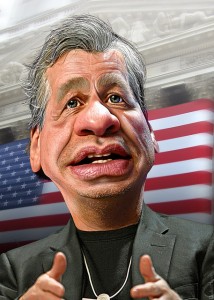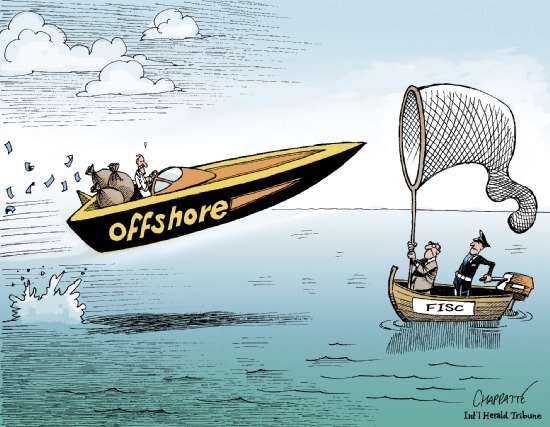Roger Ailes, the CEO of Fox News, had a long history of preying on female employees of Fox. He was dismissed because the sons of Rupert Murdock got tired of his behavior and hired a law firm to track his predatory history.
William E. Black writes: The concepts of “control fraud” and whistleblowing are related. The many women who risked their careers to blow the whistle on Ailes were classic whistleblowers. A University of Michigan Law School professor who was instrumental in creating a civil remedy for sexual harassment wrote:
Victims of sexual harassment can see what happens to other victims who came forward. “It’s career suicide to come forward, You’re roadkill. Women know this, yet some come forward. That’s what courage looks like.”
The people, overwhelmingly women, who bring complaints of sexual harassment in the workplace are whistleblowers. As a co-founder of Bank Whistleblowers United (BWU) I can vouch professionally and personally that it takes “courage” to blow the whistle. The sexual harassment context can call for the particularly great courage among whistleblowers because blowing the whistle will provide highly personal information about the victim and inevitably leads to “slut shaming” abuse and trolls.
MacKinnon also rightly emphasizes the inherent role of the harasser’s power over the harassed.
“A lot of men have gotten away with sexual harassment with absolutely no consequences,” said Catharine A. MacKinnon, a professor of law at the University of Michigan and Harvard Law School who pioneered sexual harassment lawsuits. No matter what companies say, she added, “the real rule is that the more powerful a man is, the more he gets away with.”
“Control fraud” is a term and a theory that explains why the consequences of fraud are vastly more severe when the person who controls a seemingly legitimate entity uses it as a “weapon” to defraud. Sexual harassment is a fraud+ crime. The fraud is the deceitful statements by your boss that you were hired for your skills and would be advanced in the organization on the basis of the quality of your work. But sexual harassment is a broader crime that includes extortion. Like fraud, sexual harassment is an intentional wrong. For the sake of brevity, I will discuss for-profit firms, but the same logic applies to non-profits and government entities.
Control fraud theory explains why the combination of the seeming legitimacy of the firm and the unique power of the persons controlling the entity (I’ll use the term “CEO” for brevity) combine to create an environment in which the CEO can cause enormous harm. Bauer begins to get at that in his use of these key words: “rewarded,” “shielding,” “powerful,” and “culture.” What Bauer is describing are all important elements of how a CEO creates a criminogenic environment to optimize the use of the firm as a weapon. Ailes is alleged to have shaped such a criminogenic environment through the power to hire, fire, promote, compensate, and give or deny prominent air time. The goal according to public reports was not simply to reward other bosses for “shielding” Ailes, but to coerce younger women to have sex with Ailes, and not to go public with their complaints even if he was unable to successfully coerce them to have sex or he lost interest in them.
CEOs are the dominant creators of a firm’s “culture.” If, like me, you have had the misfortune of being forced to attend firm ethics presentations, you will have heard the same useless speechifying by business ethics “experts.” The expert will pronounce that the “tone at the top” of the firm is absolutely critical. The CEO will tell everyone how much he wants a world-class culture of ethics.
Talk by CEOs is cheap. CEOs establish the real tone at the top through their financial incentive systems and who they promote and make wealthy. If the CEO is honest, the incentive system and the personnel decisions will show that the most ethical, competent people are rewarded. If the opposite is true, then all the speeches by the CEO and the corporate “ethics statements” are simply part of crafting the criminogenic environment. The lawyers will help the CEO send out a barrage of self-serving praise for ethics in order to make it appear that the corrupt officers that the CEO has hired and promoted and incentivized to cheat were “rogues” acting in violation of the CEO’s orders. This is a subtler form of “shielding” the CEO from accountability.
Even when the victim, knowing it would destroy her career, persisted in bringing complaints for sexual harassment against Ailes, he shaped an environment at Fox News that was so criminogenic that it prevented the complaints from becoming public for over a decade. Like Soviet military doctrine, the CEO’s lawyers build “defense in depth” to protect the CEO from any personal accountability for sexual harassment. The goal is to make any victim of sexual harassment face the equivalent of attacking Kursk. The lines of defense Ailes used include:
- Requiring the employee to sign a confidentiality agreement
- Requiring the employee to sign an agreement waiving any right to sue, limiting any claim to arbitration, and making that arbitration secret (arbiters are also typically more hostile to claimants than are courts)
- Requiring the employee not to disparage the firm and its officers and employees
- Using the resources of Fox News to investigate and intimidate victims and reporters who might make their story public
- Smearing the victim through Fox News’ PR and legal staffs
- Allowing Ailes, secretly, to use millions of dollars in funds from Fox News to settle complaints of sexual harassment brought by the most committed victims – in return for non-disclosure agreements that would hide the “pattern and practice” of sexual harassment by Ailes
- Creating situations in which victims still with Fox News either had to praise Ailes to on-air reporters and interviewers or, effectively, destroy their careers. Those statements by the victims could then be used to portray the victims as liars if they later made public Ailes’ sexual harassment
- Ailes creation of a culture at Fox News of fear and enrichment that meant that most colleagues were hostile to the victims and would provide support for Ailes and attacks on victims
- The payment of enormous sums from the firm to Ailes when, after an extensive pattern of sexual harassment, he eventually left. A firm is supposed to “claw back” past compensation from its CEO in such circumstances, not give him a $40 million reward.
As with financial whistleblowers, the employees who blow the whistle on sexual harassment are the firm’s best employees. They have proven their courage in the hottest of crucibles.










